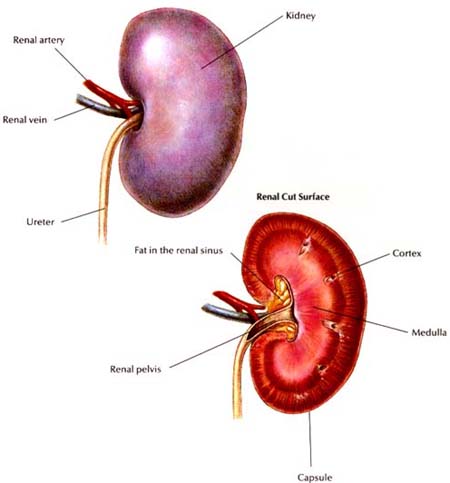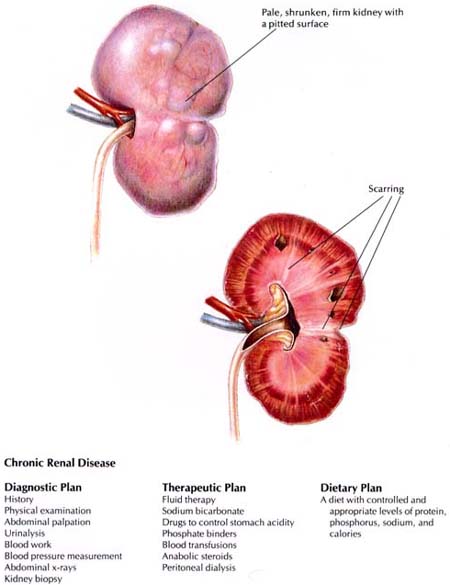
This website is designed to share with you tips, tricks and experiences encountered by us with our 15 year old female cross breed Marley who was diagnosed with Chronic Renal failure (CRF). In this website you will find information regarding management of canine kidney disease ranging from medication, vitamins, meal replacements, subQ fluid and letting go of your pet, the information shared here is not official medical info but simply tips and knowledge learned by us with Marley. What is Kidney disease Chronic kidney disease (CKD), also known as chronic renal disease, is a progressive loss of renal function over a period of months or years. The symptoms of worsening kidney function are unspecific, and might include feeling generally unwell and experiencing a reduced appetite. Often, chronic kidney disease is diagnosed as a result of screening of people known to be at risk of kidney problems, such as those with high blood pressure or diabetes and those with a blood relative with chronic kidney disease. Chronic kidney disease may also be identified when it leads to one of its recognized complications, such as cardiovascular disease, anemia or pericarditis. Chronic kidney disease is identified by a blood test for creatinine. Higher levels of creatinine indicate a falling glomerular filtration rate and as a result a decreased capability of the kidneys to excrete waste products. Creatinine levels may be normal in the early stages of CKD, and the condition is discovered if urinalysis (testing of a urine sample) shows that the kidney is allowing the loss of protein or red blood cells into the urine. To fully investigate the underlying cause of kidney damage, various forms of medical imaging, blood tests and often renal biopsy (removing a small sample of kidney tissue) are employed to find out if there is a reversible cause for the kidney malfunction. Recent professional guidelines classify the severity of chronic kidney disease in five stages, with stage 1 being the mildest and usually causing few symptoms and stage 5 being a severe illness with poor life expectancy if untreated. Stage 5 CKD is also called established chronic kidney disease and is synonymous with the now outdated terms end-stage renal disease (ESRD), chronic kidney failure (CKF) or chronic renal failure (CRF). Forms Canine kidney disease is classified as acute or chronic. The acute form occurs suddenly and may cause irreversible damage to the kidneys. It can affect dogs of any age. Chronic canine kidney disease usually affects older dogs. This condition slowly develops over long periods of times and normally causes irreversible damage. Causes There are many causes of canine kidney disease. Toxic chemicals such as rat poison or antifreeze are one of the leading causes. Canine kidney disease can also be caused by heart disease and fungal or bacterial infections. Medications like antibiotics and chemotherapy drugs can also be responsible for this condition when they are taken over long periods of time. Symptoms If you dog is suffering from canine kidney disease, he will show a variety of symptoms. The most common include dehydration, increased water consumption, and frequent urination. Your dog may also have discolored teeth and a loss of appetite. Other symptoms of canine kidney disease are muscle weakness, mouth ulcers, shivering, and diarrhea. Read on...
Home - SubQFluids - Supplements - Letting go - About |
.jpg)

